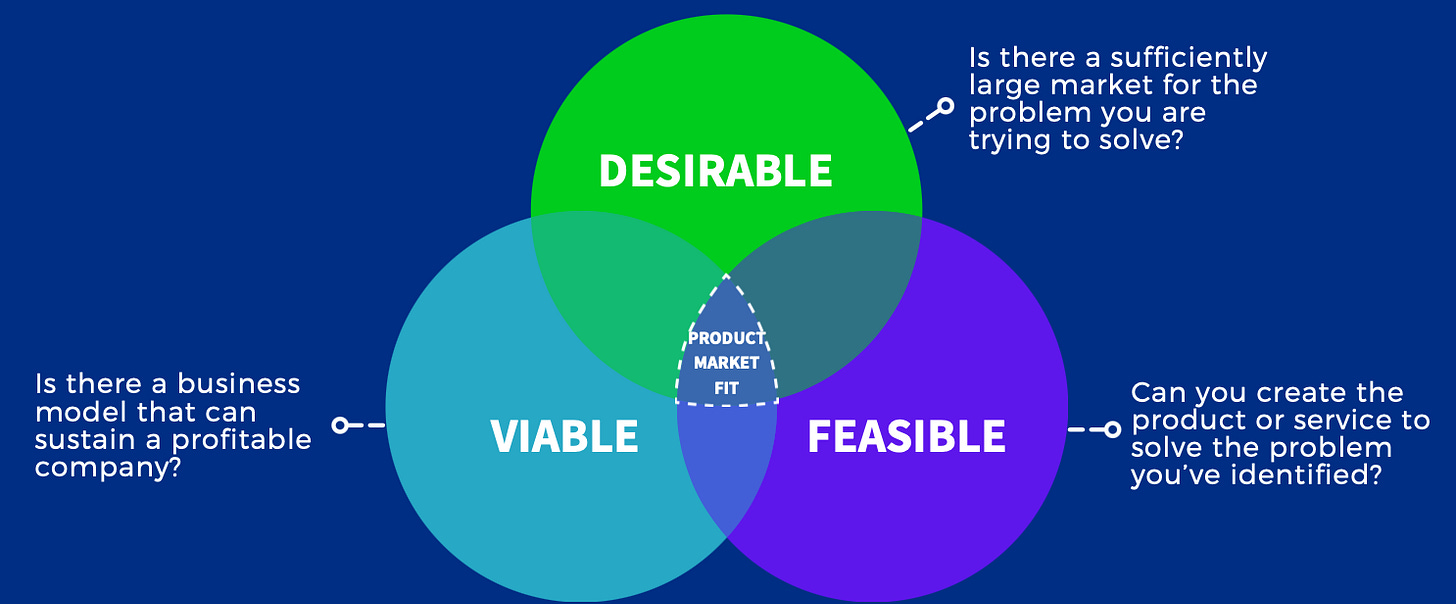Market first, product second
Estimated Reading Time: 2 minutes and 32 seconds
Welcome to another edition of Tuesday Terms, where we cover a business term in depth.
Last week’s poll had very conclusive results, today we’ll be talking about product market fit.
Before we dive in, vote for next week’s Tuesday Terms topic!
If there’s a certain topic you’d like covered, leave a comment letting us know.
Product Market Fit
To understand product market fit, let’s break it down into the individual words.
Product: An item or service an organization provides to a consumer
For example:
Clothes
Software
*Interesting side note. If you don’t pay for something, YOU are the product. Think of Facebook. You don’t pay to use it, but Facebook sells the user as the product to advertisers.
Market: A group of consumers defined by geography, age, occupation, or other identifiers
For example:
The Bay Area
Ages 65+
Real Estate agents
*Total addressable market(TAM) is a huge factor when starting a business. You can choose to go after a large TAM or a small TAM and that’s going to have a large impact on how you run your business.
This Venn Diagram illustrates the intersection of our product and market. It doesn’t matter how cool your product is. If there’s no market to sustain it then it’s useless.
Here’s a great example of an interesting and innovative product that had ZERO customers and never sold a single product.
Often in non-tech businesses founders don’t have to think a lot about product market fit. That’s one of the beauties of a non-tech business. You see a need, provide that service, and make money.
No one who lives in Florida is going to say “I should really start a snow removal business.”
In Montana, you could look around and see a shortage of snow plows, buy a rig, easily find customers, and get started.
There are some gray areas to be aware of and avoid. If your market is primarily new construction builders, just be aware things are going to fluctuate and you need to go into business cautiously.
One of the mistakes new entrepreneurs often make is focusing too much on the product instead of the market.
When starting a new business venture it is far more effective to think “What unique access do I have to an untapped market?” Instead of “What product should I develop?”
Market first, then product.
Do you know someone who is all about business ideas and never stops to think about whether it will actually have a market? If so, they should be reading The Steel Road.
Take 2 seconds to click a link and give feedback on this post.
With your feedback, we can improve the newsletter. Click on a link to vote:



